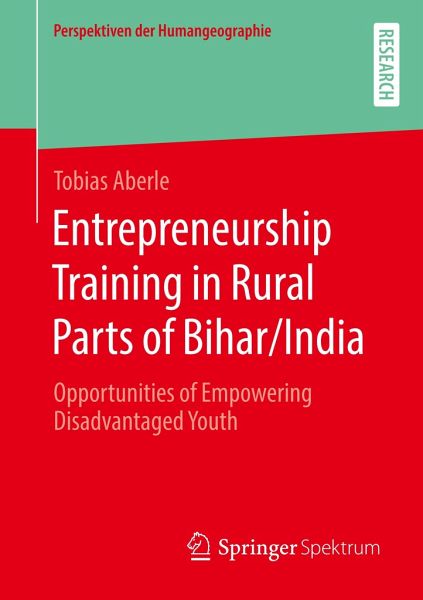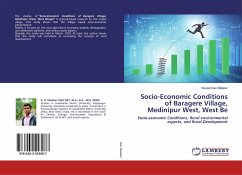
Entrepreneurship Training in Rural Parts of Bihar/India
Opportunities of Empowering Disadvantaged Youth

PAYBACK Punkte
19 °P sammeln!
Tobias Aberle examines how an entrepreneurship training helps disadvantaged youths in rural parts of Bihar, India, to cope with structural conditions that enable or constrain them. The present research reveals that young entrepreneurs can be divided into two groups: those who developed personal initiative and thus coped with limiting structural conditions very proactively, and those who solely behaved in a reactive way. For many entrepreneurs, the self-employed activity was only a Plan B, as in reality they sought for high-prestige career jobs. IFor entrepreneurship training to become a tool o...
Tobias Aberle examines how an entrepreneurship training helps disadvantaged youths in rural parts of Bihar, India, to cope with structural conditions that enable or constrain them. The present research reveals that young entrepreneurs can be divided into two groups: those who developed personal initiative and thus coped with limiting structural conditions very proactively, and those who solely behaved in a reactive way. For many entrepreneurs, the self-employed activity was only a Plan B, as in reality they sought for high-prestige career jobs. IFor entrepreneurship training to become a tool of empowerment, the range of training must be significantly adjusted in accordance with young trainees' social and educational backgrounds. In addition, a functioning ecosystem for entrepreneurship education must be in place, which ensures support for individual entrepreneurs through mentorship and networks.












![Voyages, Maritime Adventures and Commercialenterprises in All Parts of the World [microform]: Comprising a Period of Twenty-four Years, in Every Kind Cover Voyages, Maritime Adventures and Commercialenterprises in All Parts of the World [microform]: Comprising a Period of Twenty-four Years, in Every Kind](https://bilder.buecher.de/produkte/65/65494/65494642n.jpg)

